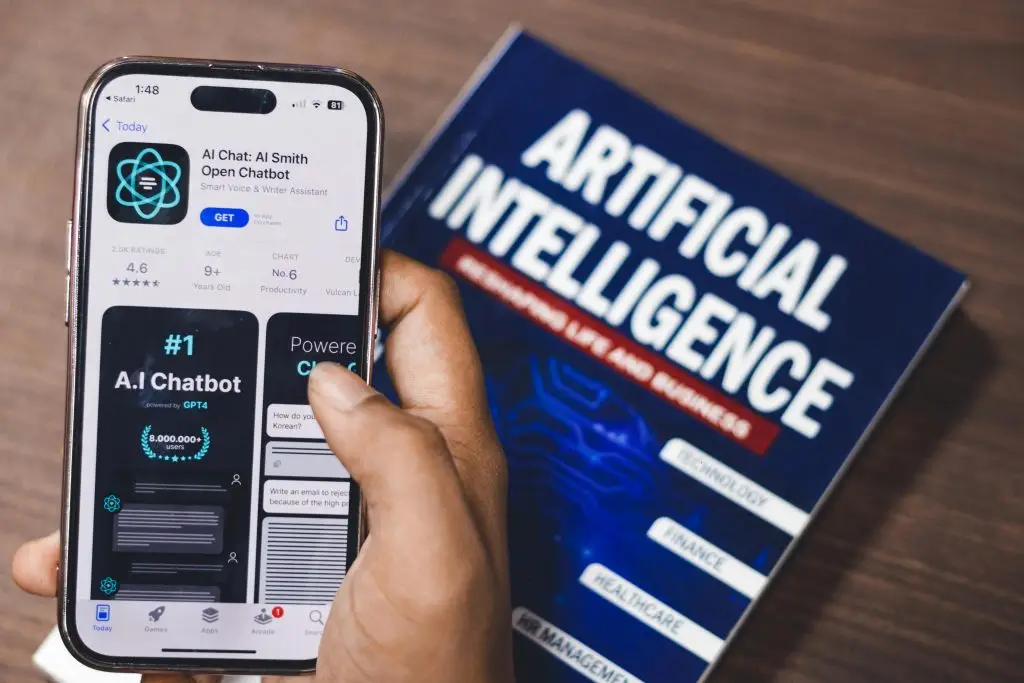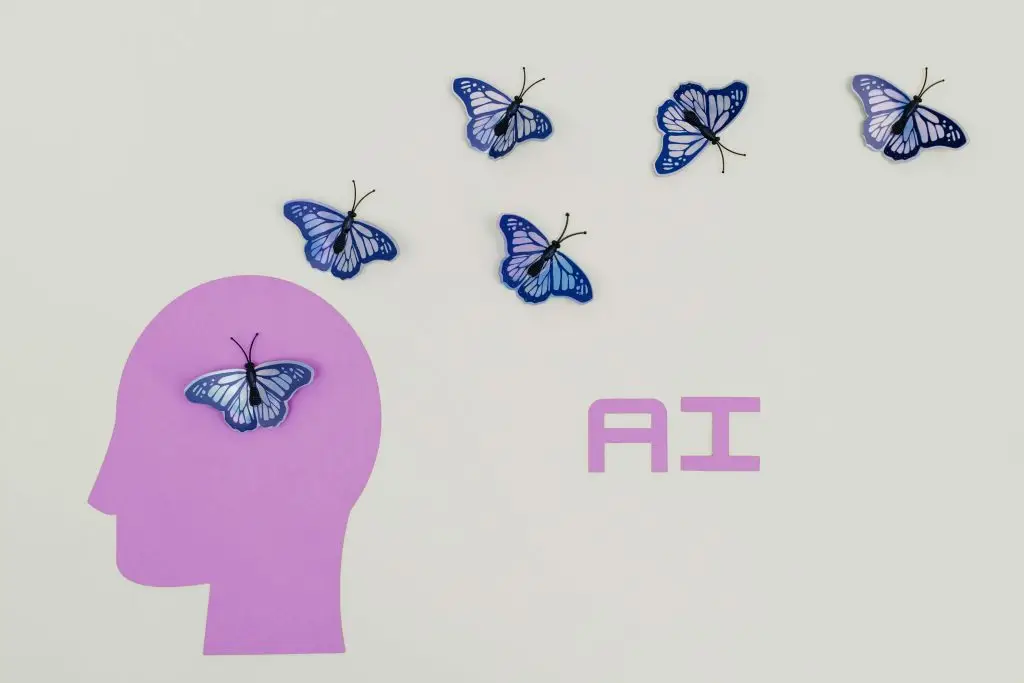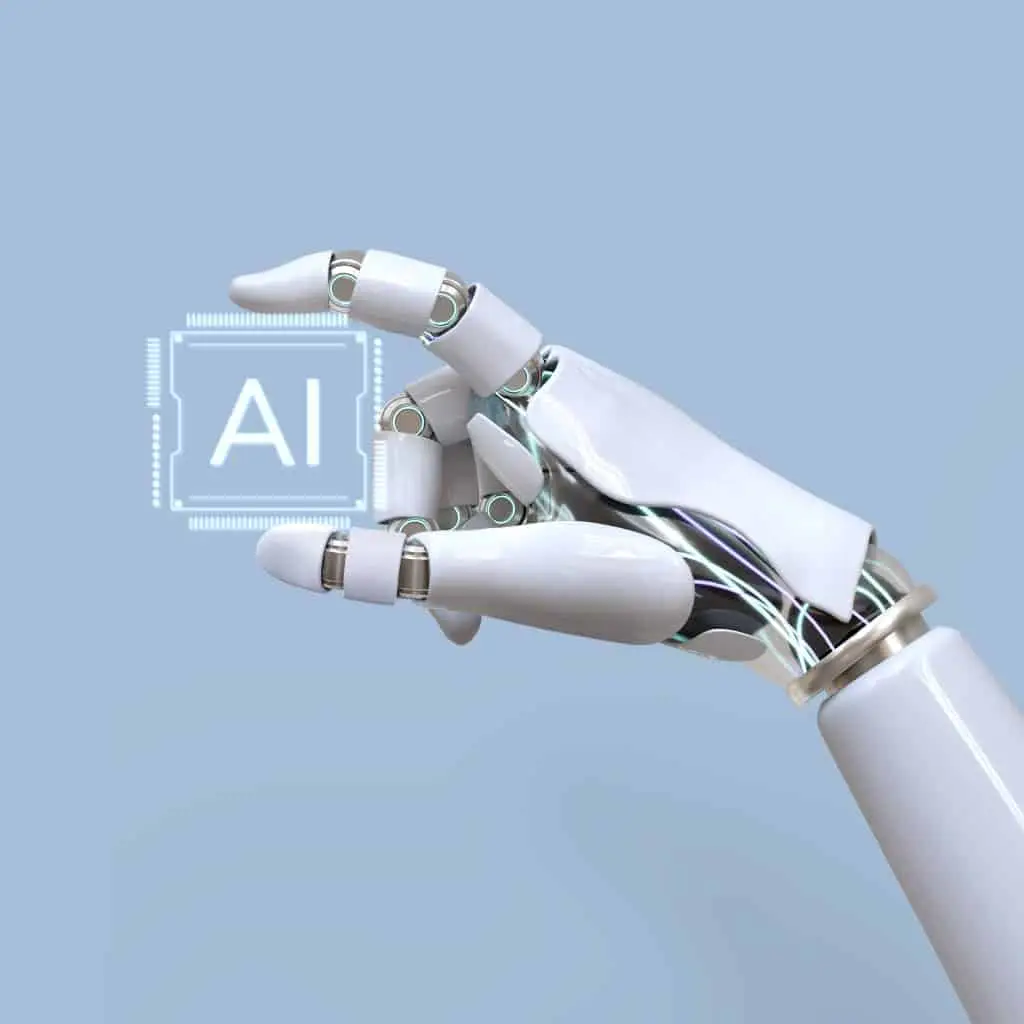By 2025, artificial intelligence could boost global GDP by 14%, that’s $15 trillion, according to PwC. This huge figure shows a big change as AI moves from tech labs to everyday business. The next big thing isn’t just faster computers. It’s how AI will change how we work, heal, and live by 2025.
AI is now more than just tools. It’s systems that learn, predict, and improve at scales humans can’t. The impact of AI on industries will change seven key areas. These include healthcare, finance, and manufacturing, changing supply chains, customer experiences, and jobs.
This article shows how 2025 is not far off. It’s a deadline for industries to adapt or face being left behind. The 7 Industries That Will Be Transformed by AI in 2025 are healthcare, finance, manufacturing, retail, transportation, energy, and agriculture. AI will automate tasks, find new insights, and create new value in each.
AI is more than a tool; it’s a driver of big changes. It will bring personalized cancer treatments and self-driving trucks that cut costs. These changes will have a big impact on the U.S. economy. This analysis focuses on real technologies already being tested, like Google’s DeepMind in healthcare or Amazon’s AI in warehouses.
Key Takeaways
- AI could add $15 trillion to the global economy by 2030, with 2025 as a critical adoption milestone.
- Healthcare, finance, and manufacturing will see the fastest AI-driven changes, altering everything from diagnostics to factory robots.
- By 2025, 70% of U.S. businesses plan to integrate AI into core operations, per McKinsey reports.
- Consumer-facing industries like retail and energy will use AI to predict trends and reduce waste.
- Workforce adaptation and ethical AI frameworks are urgent priorities as these transformations accelerate.
The Current State of AI and Its Transformative Potential
Today, artificial intelligence is moving fast from being experimental to being a key business tool. Over the last ten years, AI has made things like real-time language translation and self-driving cars common. This change is thanks to big steps forward in AI technology.
How AI Technology Has Advanced in Recent Years

Now, machine learning can process data quicker than ever. This lets systems like OpenAI’s GPT-4 write clear text or Tesla’s Autopilot understand roads. Advances in natural language processing and computer vision have made AI crucial in healthcare and customer service. These improvements are thanks to new algorithms and more training data.
Why 2025 Is the Tipping Point for Industry Transformation
Several factors are making AI adoption crucial. Cloud computing costs have fallen by 40% since 2020, and GPU power doubles every 18 months. In 2023, AI got $67 billion in venture capital, showing big trust in its uses. By 2025, AI won’t be just an option, it will be essential.
Key AI Technologies Driving Change Across Sectors
Let’s look at the main technologies leading this change:
| Technology | Key Application | Example Use Cases |
| Deep Learning | Prediction and Pattern Recognition | Stock market forecasting, fraud detection |
| Reinforcement Learning | Decision-Making Systems | Supply chain route optimization, robotics control |
| Generative AI | Content Creation and Simulation | Drug discovery modeling, personalized marketing content |
These technologies are real and already in our daily lives, like Google’s search or Amazon’s suggestions. By 2025, their impact will be even bigger.
Healthcare, Finance, and Manufacturing: Leading the AI Revolution
AI is changing the game in three key areas: healthcare, finance, and manufacturing. These sectors are leading the way with new technologies. They’re making big changes that we can already see today.
Healthcare: Personalized Medicine and Predictive Diagnostics
AI tools like IBM Watson Health and Google DeepMind are changing healthcare. They use genetic data to create personalized treatments. This means doctors can find diseases early, saving lives and money.
Hospitals are also using AI to improve imaging. Systems like Enlitic help doctors make accurate diagnoses. This reduces errors by 30%, showing AI’s value in healthcare.
Finance: Algorithmic Trading and Fraud Detection Evolution
In finance, AI is making a big impact. Goldman Sachs’ MARC algorithms help manage portfolios in real time. Systems like Feedzai detect fraud before it happens, saving banks 45% in losses.
These advancements are thanks to AI’s ability to analyze data quickly. This makes finance more efficient and secure.
Manufacturing: Smart Factories and Supply Chain Optimization
Manufacturers like Siemens and General Motors are using AI to predict when equipment will fail. This cuts downtime by 20%. It’s a big win for productivity.
AI is also improving supply chains. Microsoft’s Azure Digital Twins helps them bounce back from disruptions faster. This is crucial after recent supply chain issues.
| Industry | AI Application | Impact by 2025 |
| Healthcare | Genetic analysis, predictive imaging | 30% reduction in treatment costs |
| Finance | Algorithmic trading, fraud analytics | 50% faster transaction approvals |
| Manufacturing | Predictive maintenance, real-time logistics | 40% lower operational delays |
7 Industries That Will Be Transformed by AI in 2025 and Beyond
Looking at the future of AI in business, we see big changes coming in 2025. These changes will hit transportation, retail, education, and energy hard. AI is already changing these sectors, and we’ll see big results by 2025. Here’s a look at what’s in store:
| Industry | Current Adoption | Key Applications | 2025 Projections | Impact on Stakeholders |
| Transportation | Autonomous prototypes (Waymo, Tesla) | Route optimization, traffic prediction | Level 4 autonomy in delivery fleets | Reduced accident rates by 30% (NHTSA estimates) |
| Retail | Chatbots, inventory analytics | Dynamic pricing, AR try-ons | 90% of top retailers use AI-driven warehouses | 24/7 personalized shopping experiences |
| Education | Adaptive learning platforms (Coursera) | Curriculum design, grading automation | AI mentors for 60% of K-12 schools | Student performance tracking via real-time feedback |
| Energy | Predictive grid maintenance | Renewable energy forecasting | AI-managed solar/wind grids in 15 U.S. states | 40% cost reduction in energy waste (DOE reports) |
By 2025, AI will be a big part of our daily lives. From smarter power grids to AI tutors in classrooms, it’s all coming. Companies like Amazon and Siemens are leading the way. They’re setting new standards.
Businesses that don’t keep up with AI trends will fall behind. Consumers want services that use AI. The future of ai in business depends on embracing these changes. We must act now before the air disruption in 2025 is too late.
The Human Impact of AI-Driven Industry Transformation
AI is changing industries, and it’s affecting people too. This part looks at how an impact on industries changes work, ethics, and daily life. It’s about finding a balance between new tech and human needs.
Workforce Changes and New Skill Requirements
Automation is changing jobs. Roles that need creativity and empathy, like AI ethicists or data analysts, are growing. The U.S. Bureau of Labor Statistics says AI jobs will increase by 31% by 2030.
Now, skills like critical thinking and AI literacy are key. Programs like IBM’s SkillsBuild are teaching these skills for new jobs.
Ethical Considerations of AI Implementation
AI raises big ethical questions in industries. In healthcare, algorithms must not show racial bias in diagnosis. Finance systems need to keep customer data safe.
Groups like the Partnership on AI push for AI transparency. They want companies to explain how AI tools make decisions. The U.S. is considering laws, like the Algorithmic Accountability Act, to tackle these issues.
How American Consumers Will Experience AI Transformation
AI will touch our lives every day. For example, Chase and Wells Fargo use AI to fight fraud in banking apps. Retailers like Walmart use AI to manage stock and cut wait times.
Here’s how different industries are using AI:
| Industry | AI Consumer Impact |
| Healthcare | Telehealth platforms (Telemedicine) enable remote diagnosis |
| Retail | Dynamic pricing and inventory tracking via Amazon’s algorithms |
| Transportation | Self-driving trucks from Waymo optimizing delivery routes |
In conclusion, while industries affected by ai bring efficiency, the human side is key. Ethics, education, and rules will shape this change. Finding a balance between new tech and fairness is crucial.
Conclusion: Preparing for an AI-Transformed Economy
The 7 industries set to change with artificial intelligence in 2025 are on the edge of big changes. Healthcare will see personalized medicine, and manufacturing will have smart factories. AI will change how businesses and societies work. It’s crucial to be ready for these changes.
Business leaders need to use AI tools like predictive analytics and automation to stay ahead. Working with tech leaders like IBM Watson or NVIDIA can help. Workers should get certified in data science or ethical AI to keep up with new roles.
Policymakers must update education to prepare for AI jobs. They should also create rules that balance innovation with privacy, like the EU AI Act. Helping workers who lose their jobs through training is key to smooth transitions.
Despite challenges like job loss and ethical issues, AI offers many chances. It can help with climate, logistics, and healthcare. My view is that those who start using AI or push for fair policies will lead the change. The next few years will change industries and what’s possible. Keeping up with AI is not just helpful; it’s essential for success in the future.
FAQ
What are the 7 Industries That Will Be Transformed by AI in 2025?
In 2025, seven key industries will see big changes thanks to AI. These are healthcare, finance, manufacturing, transportation, retail, education, and energy. AI will make these sectors more efficient and open up new chances for businesses and people.
How is AI expected to impact the workforce in these industries?
AI will change the job scene in both good and bad ways. Some jobs will be automated, but new ones will need both human creativity and AI skills. Knowing how to work with data, manage AI, and solve problems creatively will be key. It’s important for workers to adapt to these changes to stay relevant.
Why is 2025 considered a tipping point for AI adoption across various sectors?
2025 is a big year for AI because of many reasons. Computing power, algorithm improvements, and more data are all helping. Also, more money is being put into AI, making it a great time for it to be used in many areas.
What ethical considerations should be taken into account with AI implementation?
As AI grows, we must think about its ethics. We need to make sure AI decisions are clear, protect privacy, and avoid biases. Industries must create rules to use AI in a way that’s fair and safe for everyone.
How will AI transformation affect American consumers in their daily lives?
AI will change how Americans live every day. It will make shopping, healthcare, and managing money easier and more personal. People will get services that fit their needs better, making life more convenient.
What are some specific AI applications currently being utilized in healthcare?
In healthcare, AI is used for early disease detection and personalized treatments. It looks at your genes and lifestyle to make treatment plans just for you. This could lead to better health and lower costs for everyone.
What advancements in AI technology are driving sector transformation?
AI’s growth is thanks to machine learning, natural language processing, and computer vision. These technologies let systems learn, understand language, and see things, making things more efficient and useful in many fields.


 Owner of Write Remotely. Connecting businesses with talented writers and empowering remote work.
Owner of Write Remotely. Connecting businesses with talented writers and empowering remote work.

